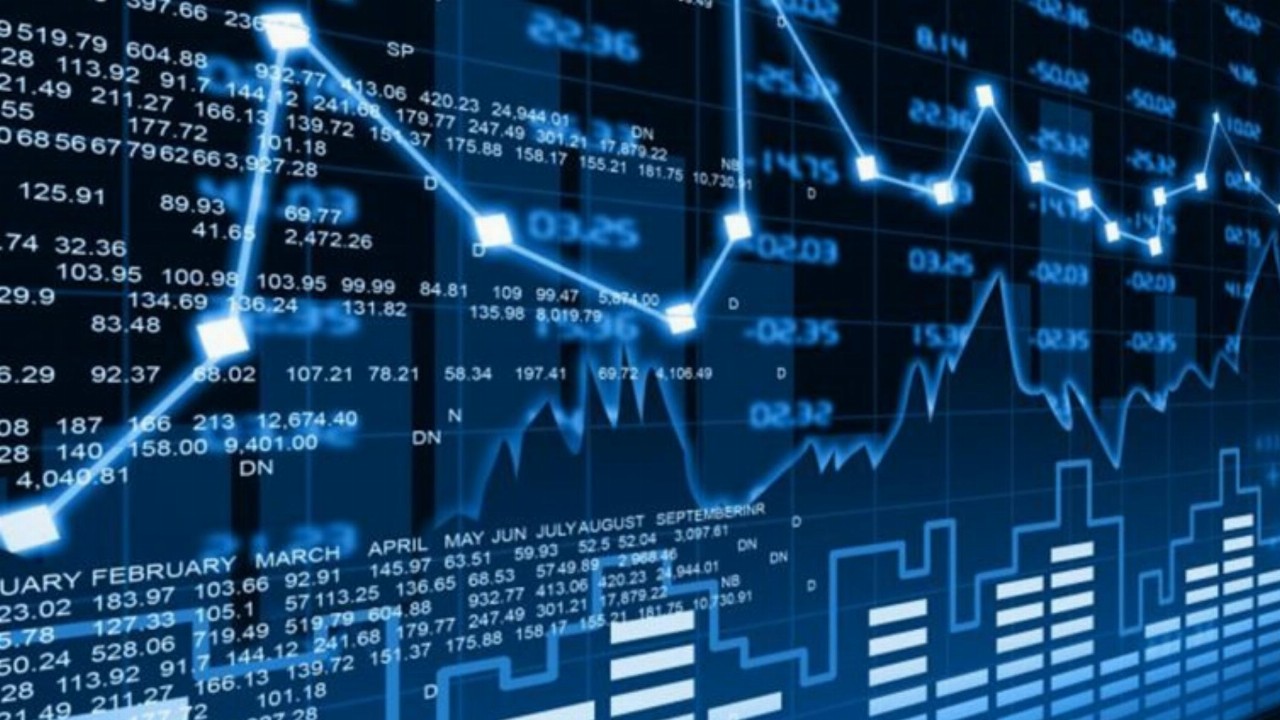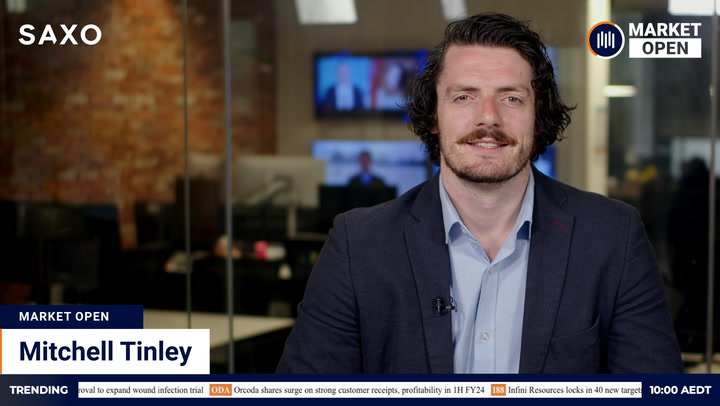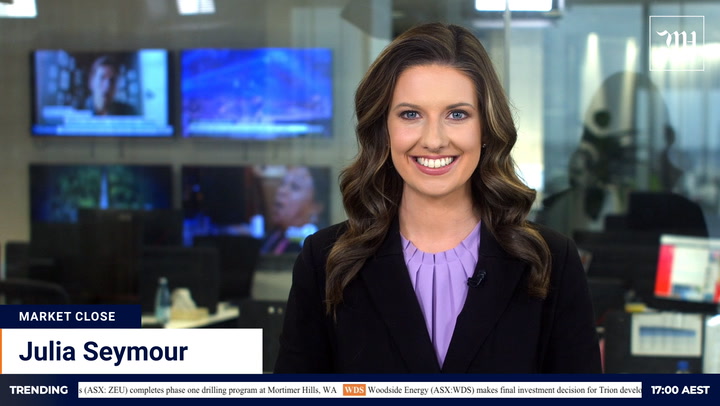A cautious session on Wall Street amid a revival of omicron worries and ahead of a two-day Federal Reserve policy meeting points to early pressure on Australian stocks.
ASX futures retreated 41 points or 0.56 per cent as US stocks declined.
Crude oil, copper, the Australian dollar and other risk assets fell. Treasuries, the US dollar, gold, and iron ore advanced.
Wall Street
US investors turned risk-averse ahead of a Fed meeting that is widely expected to signal a looming end to this era of easy money. Travel-related stocks declined after British Prime Minister Boris Johnson warned of a “tidal wave” of omicron Covid infections.
The S&P 500 fell 42 points or 0.82 per cent from Friday’s record close. The Dow Jones Industrial Average shed 310 points or 0.86 per cent. The Nasdaq Composite lost 211 points or 1.35 per cent.
“Concerns are plentiful… ranging from a market which recently rallied quickly back to record highs, to ongoing Covid concerns. But the elephant in the room today and perhaps for the next few days will be the Federal Reserve and just how hawkish a tone they adopt later this week,” Jim Paulsen, chief investment strategist for Leuthold Group, said.
The Fed meets tonight for one of the most keenly-awaited meetings in recent history. With inflation running red hot, the US central bank is expected to accelerate the taper of its bond-buying program by months and lay the groundwork for rate increases next year.
“Everyone is focused on the Fed this week and what guidance we get in terms of bond purchases and interest rates. There’s an expectation that there will be an acceleration of tapering, and there’s a little anxiety leading up to that,” Ryan Jacob, chief portfolio manager at Jacob Internet Fund, said.
A recent recovery in reopening plays hit a wall as investors mulled mixed news on omicron. The UK reported its first death from the variant. Health Secretary Sajid Javid said cases of the highly-transmissible strain were doubling every few days.
“I think the idea that this is somehow a milder version of the virus, I think that’s something we need to set on one side and just recognize the sheer pace at which it accelerates through the population,” Prime Minister Johnson said as he called on Britons to get booster shots.
United Airlines fell 5.24 per cent, cruise line Carnival 4.88 per cent and casino group Wynn Resorts 3.21 per cent. Aircraft-maker Boeing shed 3.71 per cent.
Britain’s FTSE 100 dropped 0.83 per cent. The pan-European Stoxx 600 gave up 0.43 per cent.
Vaccine-makers rallied. Moderna put on 5.82 per cent. Pfizer gained 4.62 per cent after Israeli research indicated three shots of the Pfizer-BioNTech vaccine were effective against omicron.
The VIX or volatility index bounced 7 per cent after falling on Friday to its lowest in three weeks. Volatility abated as the S&P 500 recorded its best week since February.
Australian outlook
A downbeat open coming up after US investors took a little risk off the table following Wall Street’s strongest week in months.
Last night’s trade was fairly typical of the countdowns to Fed meetings. Wall Street often takes a step back a day or two out from the meeting, then recovers into the actual policy announcement. As with Friday’s US inflation report, the market has a very good idea what is coming from the Fed tomorrow night, so surprises are unlikely.
The S&P/ASX 200 looks likely to give back most, if not all, of yesterday’s 26-point advance. The trend since the index’s all-time high in mid-August has been gently negative.
While support at 7200 held well during the worst of the omicron ructions, the index needs to put in a “higher high” to break this medium-term pattern. Last week’s failure to close above 7470 appeared to confirm the downtrend.
The dollar turned lower overnight as the mood on financial markets turned defensive. The Aussie dropped 0.5 per cent to 71.29 US cents.
US traders bought bonds and sold cyclical stocks. The night’s only positive sectors were all defensive bond proxies. Real estate gained 1.33 per cent, utilities 1.22 per cent, consumer staples 1.21 per cent and healthcare 0.93 per cent.
Energy stocks sank 2.76 per cent, financials 1.13 per cent and materials 0.66 per cent. The tech sector shed 1.62 per cent.
Back home, NAB’s business confidence index for November is due at 11.30 am AEDT.
Afterpay is scheduled to hold a vote on a takeover offer from US giant Square. HUB24 holds its AGM.
Commodities
Iron ore rebounded sharply after a Chinese government commitment to focus on economic stability next year soothed demand worries. The spot price for ore landed in China jumped US$7.60 or 7.4 per cent to US$110.20 a tonne.
Senior Chinese officials said the government would prioritise stability next year, following the conclusion of last week’s Central Economic Work Conference. The annual conference sets the country’s economic priorities for the following year.
“All sides should actively introduce policies that can help stabilise the economy, and be cautious in rolling out measures that will have a contractionary effect,” said Han Wenxiu, deputy director in charge of routine work of the Office of the Commission for Financial and Economic Affairs of the CPC Central Committee, according to the Xinhua News Agency.
BHP‘s US-listed stock rallied 0.79 per cent. Its UK-listed stock eased 0.09 per cent. Rio Tinto gained 0.12 per cent in the US after losing 0.13 per cent in the UK.
Oil retreated with other risk assets as gloomy warnings about the spread of omicron cooled buying interest. Brent crude settled 76 US cents or 1 per cent lower at US$74.39 a barrel.
“Omicron so far does not look deadly, but there are still lingering concerns about potential oil demand destruction from it,” Phil Flynn, senior market analyst at The Price Futures Group, said.
Gold inched to its highest in three weeks in the wake of Friday’s elevated US inflation reading. Metal for February delivery settled US$3.50 or 0.2 per cent ahead at US$1,788.30 an ounce. The NYSE Arca Gold Bugs Index rose 0.86 per cent.
“The yellow metal is considered to be a safe haven commodity, which investors use to hedge against inflation in times of uncertainty,” Naeem Aslam, chief market analyst at AvaTrade, said.
Copper was pressured by a rising US dollar and increased inventories at London Metal Exchange-registered warehouses. Benchmark copper on the London Metal Exchange eased 0.7 per cent to US$9,442 a tonne. US-traded copper dipped 0.1 per cent to US$4.284 a pound.







